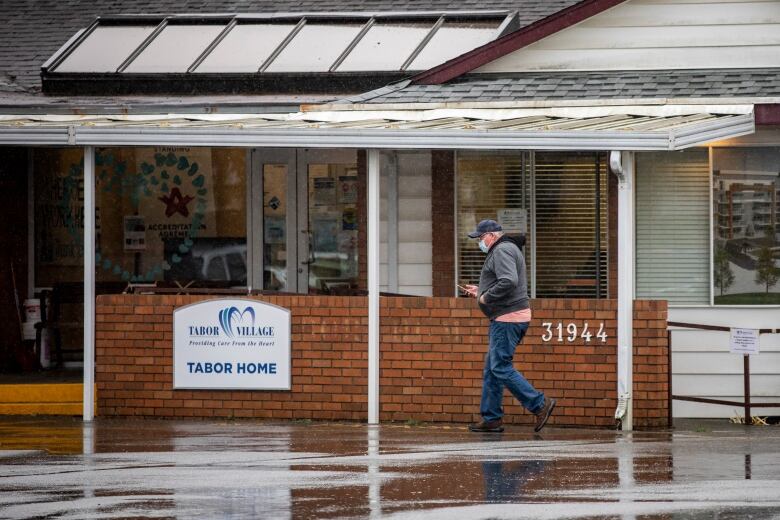B.C.'s seniors advocate calls for paid sick leave, more staff in long-term care to prevent COVID-19 deaths
40% of staff in care homes went to work sick in first 2 waves of pandemic, report finds

B.C.'s seniors advocate says the province must expand paid sick-leave provisions for staff, hiremore registered nurses, eliminateshared rooms and increasethe scope and frequency of COVID-19 testing in order to prevent further outbreaks and deaths in its long-term care homes.
A review of COVID-19 outbreaks in care homes released Wednesdayrevealed that 40 per cent of long-term carestaff went to workfeeling unwell during B.C.'s first two waves of the pandemic, which was a contributing factor inthe death of 800 residents.
"Their reasons for doing so were often benevolent and related to concern about the burden on co-workers and residents that their absence would cause," said the report compiled by the Office of theSeniors Advocate for B.C.
"However, 20 per centof staff made a difficult choice to go into work because of financial pressures as they would not receive paid sick leave to stay at home."
The report looked at 487 facilities and found76 per cent of first cases that led to an outbreak in a long-term care facilitycame froma staff member.
The investigation's findings confirm that the lack of paid sick leave left health-care workers vulnerable and undermined efforts to control the spread of the coronavirusin care homes, said Meena Brisard, secretary-business manager of theHospital Employees' Union.

"Twenty years ago, most government-funded care homes public, non-profit and for-profit provided 18 paid sick days leave annually with no contracting out under a common labour agreement," saidBrisardin a statement.
"But privatization and contracting out under the previous government left us a fragmented seniors' care system, with uneven standards, and that put care home residents and workers at even higher risk to this deadly virus."
In a news conference Wednesday, seniors advocateIsobel Mackenzie saidlong-term care and assisted care staff and residents were three times morelikely tocatchthecoronavirus and residents were 32 times more likely to die from COVID-19.
Mackenzie also recommended that shared rooms in care homes be eliminated. According to the report, larger outbreaks are 24 per cent more likely in facilities with shared rooms.
The report focused on the the first two waves of the pandemic in B.C., from March to August2020, during which there were365 outbreaks of COVID-19 that led to the deaths of 800 long-term care residents.
Here is Mackenzie's full list of recommendations:
- Increase paid sick leave for all staff.
- Increase the pool of direct-care staff in general.
- Increase the levels of registered nursing staff as a proportion of direct-care staff.
- Decrease contracting for direct-care services.
- Eliminate shared rooms.
- Increase testing scope, timelinessand frequency.
- Require staff of long-term care to be vaccinated and provide booster shots to residents.
B.C. Health Minister Adrian Dix said he was appreciative of the reportand its recommendations, and noted that many of the recommendations like mandatory vaccines for all staff and booster shots for residents are in progress.
Dix added that the government has added more than 5,000care facility staff since last September, and is reviewingaiming to have more single rooms available for residents.
He said Labour Minister Harry Bainsis working on a provincewide sick leave program that will come into effect on Jan. 1, 2022.
"There is an obligation to improve the quality of life in long-term care. We've taken a lot of steps in the past few years but I believe we still need to take action to improve the quality of life," Dix said.
Mackenzie saidshe has been heartened by the public's response to calls for improvements to long-term care.
With files from The Canadian Press












_(720p).jpg)


 OFFICIAL HD MUSIC VIDEO.jpg)
.jpg)



























































































